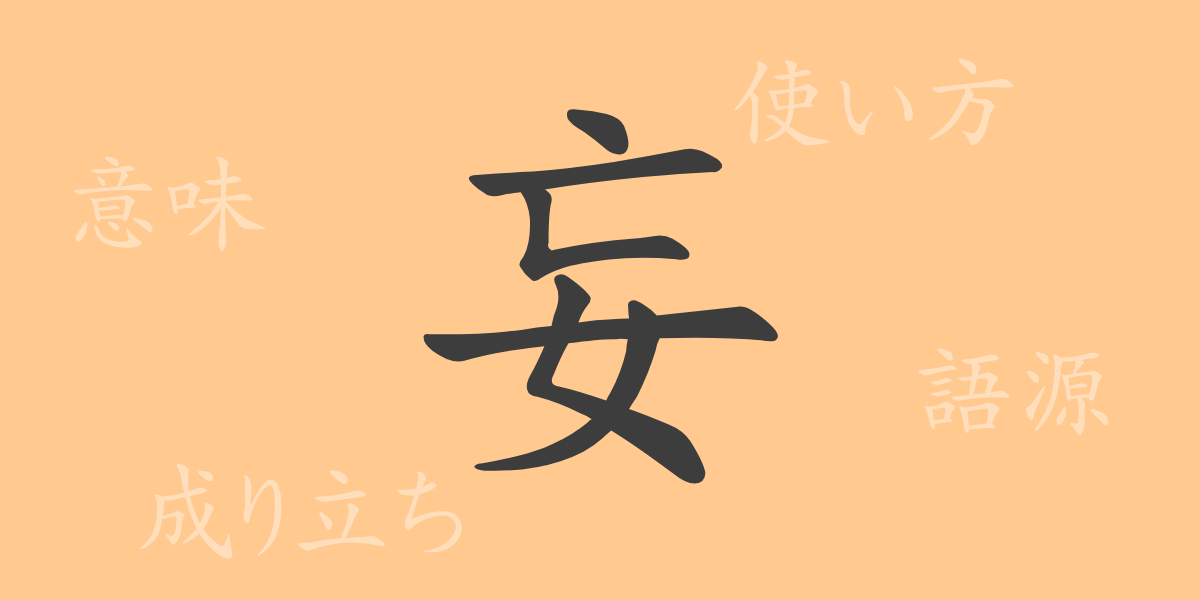The richness of the Japanese language is reflected in its kanji (Chinese characters). Each character carries meaning and history, deeply intertwined with Japanese culture. This time, we focus on the commonly used kanji “妄” (mou), which you often see in daily life but rarely get the chance to explore its background deeply. We will delve into its origins, meanings, usage, and related idioms and phrases. By understanding the breadth of this kanji’s meanings, you can deepen your understanding of the Japanese language.
The Origin of 妄 (mou)
The kanji “妄” (mou) has its origins in ancient China. This character is composed of two parts: “女” (onna) meaning woman, and “亡” (bou) meaning to lose or death. Originally, it was used to describe a woman who had lost her husband, but later it came to be widely used to mean “absurd” or “nonsensical.” This shift illustrates the evolution from a specific situational meaning to a more abstract concept.
Meaning and Usage of 妄 (mou)
The kanji “妄” (mou) is used in words like “妄想” (mousou) meaning delusion, “妄言” (mougen) meaning reckless words, and “妄誕” (moutan) meaning absurdity. Words containing this kanji often point to negative situations or behaviors. In Japanese, expressions using this kanji are abundant, allowing for the expression of subtle nuances.
Reading, Stroke Count, and Radical of 妄 (mou)
To deepen your understanding of the kanji “妄” (mou), it is important to know its readings and structure.
- Reading: The on’yomi (Chinese reading) is “モウ” (mou), with no particular kun’yomi (Japanese reading).
- Stroke count: It has a total of 8 strokes.
- Radical: The radical is “女” (onna-hen), meaning woman.
Idioms, Phrases, and Proverbs Using 妄 (mou) and Their Meanings
Idioms, phrases, and proverbs containing “妄” (mou) are widely used in Japanese. Here are some examples:
- 妄想 (mousou): Believing something without any basis, as if it were true.
- 妄言 (mougen): Reckless, baseless words.
- 妄信 (moushin): Blind belief without solid grounds.
- 妄動 (moudou): Reckless actions.
- 妄誕 (moutan): Absurd stories or actions.
These idioms and phrases frequently appear in daily conversations, literary works, and business settings, demonstrating their power in various contexts.
Summary of 妄 (mou)
The kanji “妄” (mou) has influenced many words and expressions from its origins to the present day. Understanding the depth of meaning in this single character enriches the expressive power of the Japanese language. Correctly using words containing “妄” (mou) is crucial for enhancing communication precision. Through this exploration, we hope readers rediscover the charm of the kanji “妄” (mou) and connect to a deeper understanding of the Japanese language.
“`

























